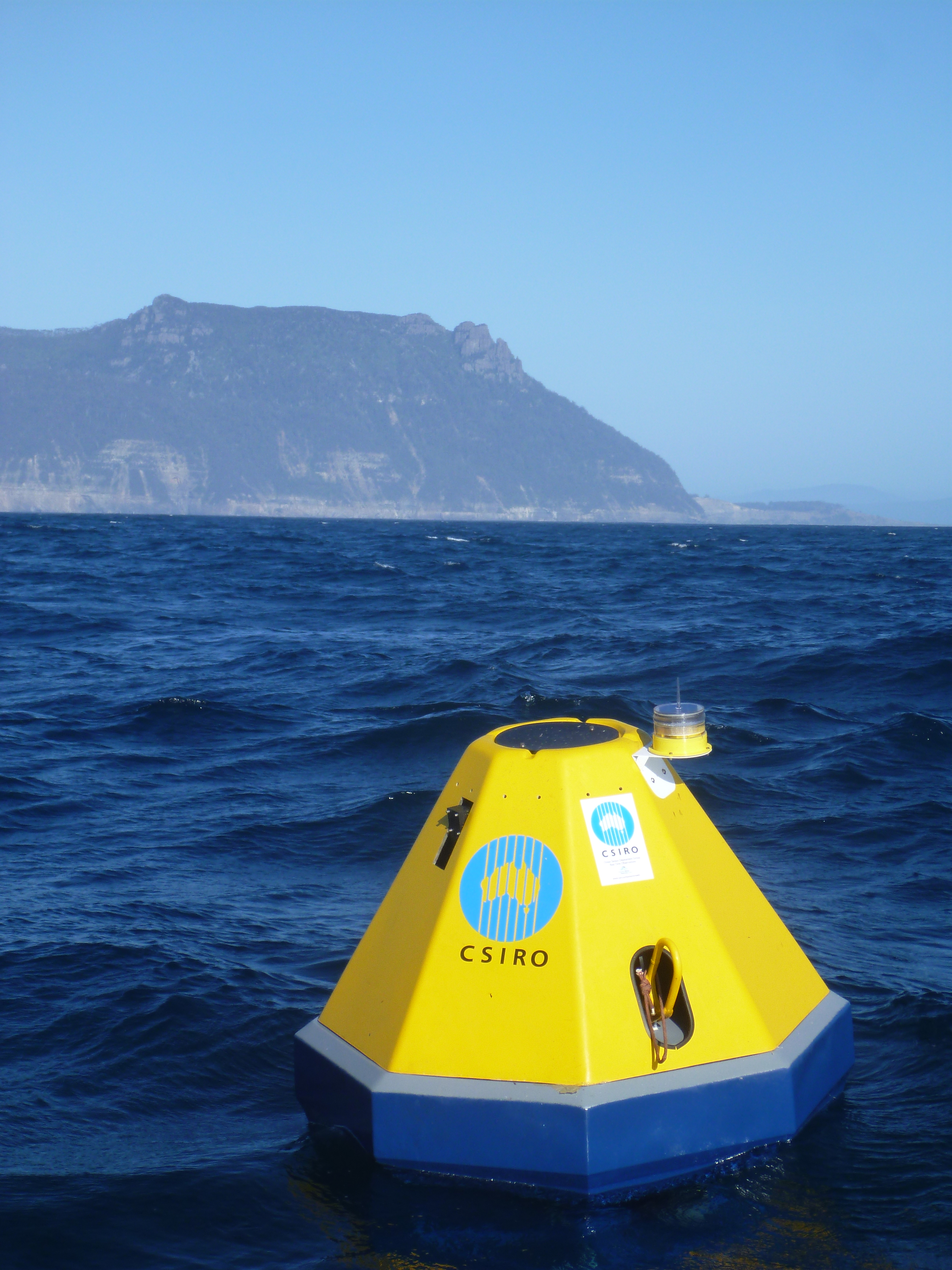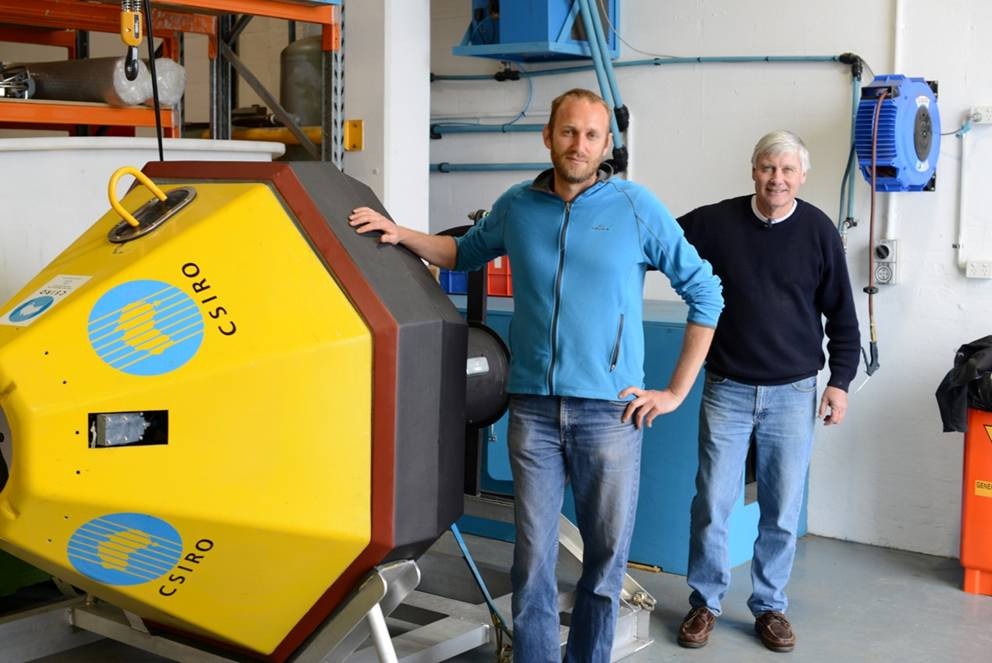Meet our new mooring! This clever beast will help detect acidity levels in the Tasman Sea.
These days, it’s easy to imagine a world without coal, oil or gas. With the growing popularity of alternative energy sources like solar power and biofuel, we’re well on the way to living cleaner and greener lives. But what happens in the mean time? Can our environment – particularly the ocean – handle the effects of carbon emissions?
Our oceans have been absorbing large amounts of carbon dioxide (CO2) ever since the industrial revolution. When CO2 enters the ocean, it combines with seawater to produce carbon acid, increasing the water’s acidity.
Australia has many unique ecosystems that may be sensitive to this acidification, from the coral reefs to the Polar Regions. It’s important to understand how this is affecting our oceans and the flow-on effects this could have for other areas like agriculture.
That’s why our scientists and the Australian Institute of Marine Science (AIMS) have built a new mooring system to monitor carbon cycling in the Tasman Sea. Based at Maria Island in Tasmania, this is one of three international observing networks in Australia’s Integrated Marine Observing System (IMOS), with others located on Kangaroo Island and the central Great Barrier Reef.
Dr Erik Van Ooijen & Dr Bronte Tilbrook with the Maria Island mooring before its launch into the briny deep.
“The ocean takes up about 25% of human generated carbon dioxide emissions each year. While this is a great benefit for us, it comes at the cost of increased acidification of our waters”, says Wealth from Oceans Flagship leader Dr Bronte Tilbrook.
This could lead to a range of negative consequences, from a decline in the growth of important species like shellfish, to a weakness in our coral reefs.
Our technicians have been collecting basic measurement samples at Maria Island each month since 1944. Now, thanks to this new system, they can use more advanced measures to determine how these changes in acidity will impact Australia’s marine ecosystems.
The mooring contains an impressive suite of environmental sensors. These can measure CO2 levels, temperature, salinity, oxygen, chlorophyll and turbidity. The system then sends this information back to our Hobart Marine Laboratories via satellite.
You can view the data from each mooring here on our website.
Media: Craig Macaulay. P: +61 3 6232 5219. M: 0419 966 465. Email: craig.macaulay@csiro.au



